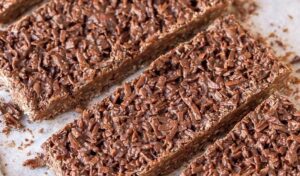
Intermittent fasting is currently one of the most popular health and fitness trends today. It involves alternating cycles of fasting and eating to give the digestive tract time to breathe.
A growing number of studies show that if done mindfully, it can improve metabolic health, protect against disease, aid with weight loss, and even increase lifespan.
What Exactly Does Intermittent Fasting Mean?
If you think about it, most of us already "fast" every day, while we sleep. As we get our ZZZ's, our stomachs are saying "thank you" for giving it time to rest and reset.
Intermittent fasting can be as simple as extending the fast between when you went to bed, when you wake up, and when you eat your first meal of the day. For example, you can skip breakfast and then eat lunch around noon. Then, you eat your last meal at 8pm.
This is the most popular form of intermittent fasting, also known as the 16/8 method.
No food is allowed during the fasting period. Drinking water, black coffee, and tea (without cream, sugar, or honey) is permitted. The fast is broken the minute a piece of food or a beverage with calories is consumed.
Why Fast?
If you think about it, humans have been fasting for thousands of years. The reason? Food hasn't always been as readily available as it is now.
Another interesting note is that humans and animals also instinctively don't feel like eating when sick. There's something in the mind and body that inspires us to clear our system out in order to reboot it for optimum performance.
Here are some ways fasting can help the body:
- It may help hormone production, promote gene health, and inspire better cellular repair processes.
- It may help reduce blood sugar and insulin levels.
- It can increase human growth hormone production.
- It can help facilitate weight loss (within reason, as over fasting can cause major problems).
- Some research suggests it can help protect against diseases, including heart disease, type 2 diabetes, Alzheimer's, and more.
Last Words
If you're considering fasting and are not sure if it's right for you, please reach out to your doctor. If you have diabetes or struggle with low blood sugar, intermittent fasting may not be the right solution for you.
It's also an excellent idea to get a game plan together. Fueling the body with healthy foods is a must.
So, if you're going too fast, think deeply about the nutrients that you want to fuel your mind and body with for your meals.
Nutrition experts suggest eating high-fiber foods, such as nuts, beans, fruits, and veggies. Also, high-quality meat, fish, tofu, and nuts is an excellent choice.
Have you tried intermittent fasting? I'd love to hear about your experiences! Please share in the comment section below.





